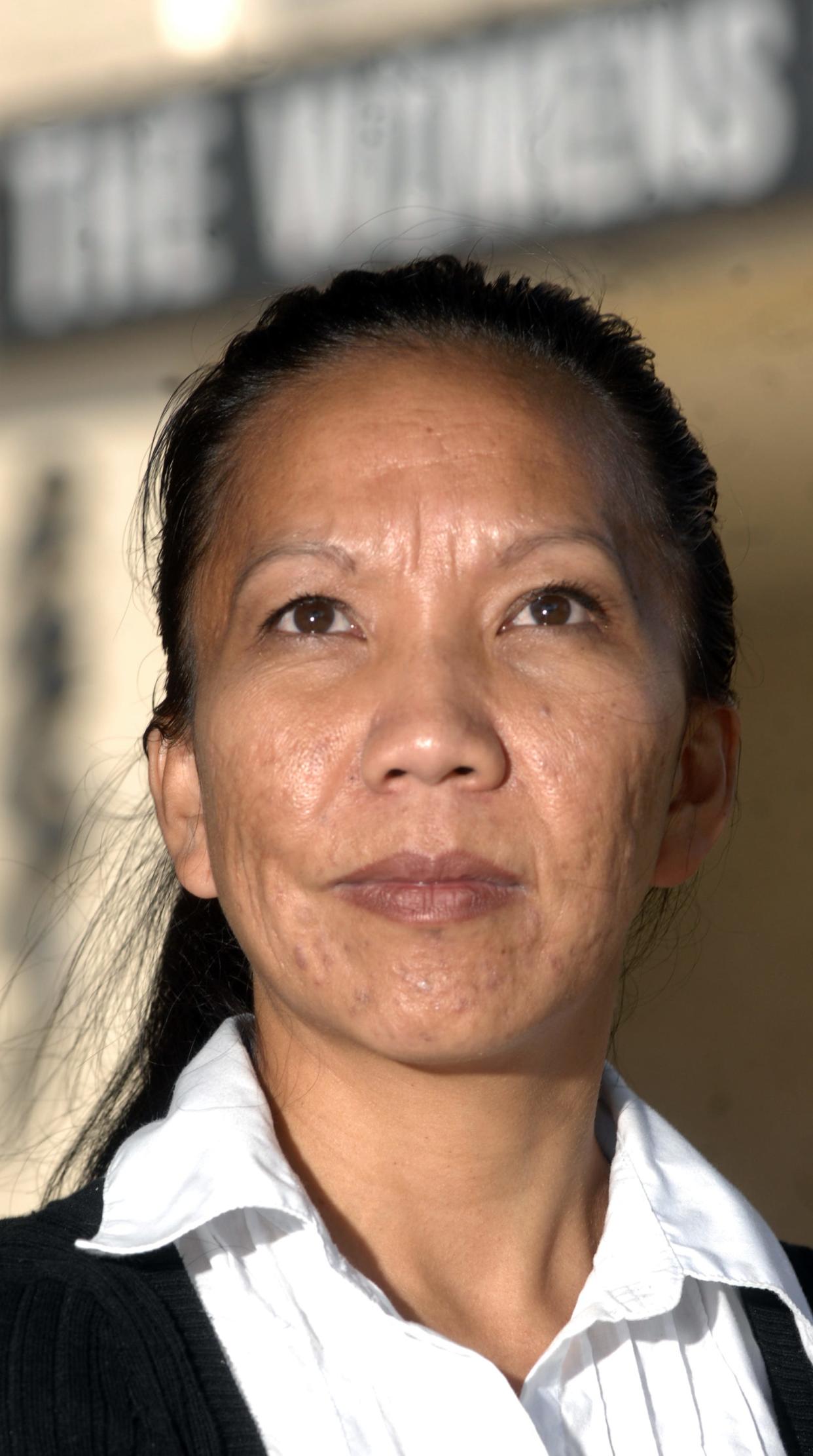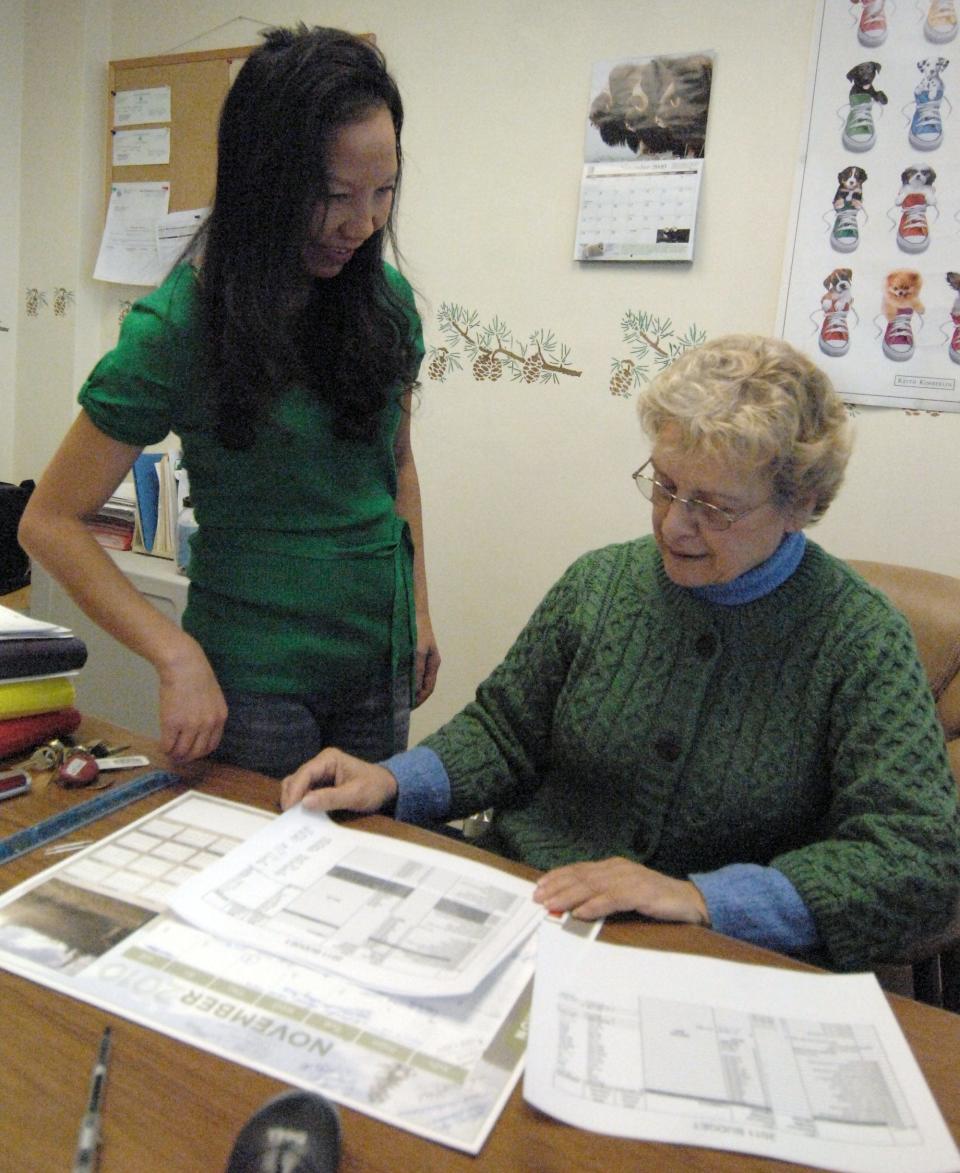'She was a hero to me': Mao Khang, tireless advocate for Hmong victims of domestic violence, dies of cancer

WAUSAU – Mao Khang, an unrelenting and groundbreaking advocate for victims of domestic violence and sexual assault, died Friday from liver cancer.
Khang, 48, fought for decades against the oppression of women and specialized in working with Southeast Asian victims. After a string of high-profile domestic homicides in central Wisconsin that resulted in the deaths of Hmong women in the early 2000s, Khang began to challenge the ancient patriarchal clan system of the Hmong culture. At the same time, she worked within it to improve the lives of Hmong women everywhere.
In 2014, Khang was elected as vice president to the Hmong 18 Clan Council of Wisconsin, the first woman to sit on the council, which oversees Hmong community affairs and influences issues such as marriages, the treatment of women and cultural practices that are part of Hmong life.
Her mission often came at a high personal cost. At times, Khang was ostracized, criticized and threatened as she rattled the social mores that have been part of Hmong life for generations. But she persisted.
"I never take oppression as an obstacle," she told the Wausau Daily Herald in 2014. "It motivates me. It empowers me to push it forward."
RELATED: Hmong American Center expands to Wisconsin Rapids, adds mental health services
RELATED: How being Hmong spurred this Wausau-area pharmacist to lead a COVID-19 vaccination effort
The influence Khang had on the Hmong community and society as a whole in central Wisconsin and beyond is immeasurable.
"I don't even know how to fully capture the depth of her impact," said Jane Graham Jennings, the executive director of The Women's Community in Wausau. Graham Jennings hired Khang in 2001, and the two grew as close as sisters over the next two decades.

Khang's work drew attention on a national scale. In November 2010, Oprah Winfrey invited Khang, along with dozens of others, to be part of the audience on her "Ultimate Favorite Things" show. Khang and other audience members were honored on the show as being "everyday heroes" who worked to improve their communities.
She also was nominated as a Wausau Daily Herald "Person of the Year" in 2014.
Graham Jennings said that Khang was a rebel and "sometimes we need the rebels to make the changes necessary. ... It was just her. She is that rebel. She knew something needed to be done and she just did it."
Khang confronted a clan system, a deeply-held foundational tradition within Hmong culture, when she saw how it could devalue Hmong women. At times, the clan system, dominated by men, gave more support to men who oppressed women than the victims of that oppression, and Khang called it out when she saw that happening. Her criticism meant some people ostracized her in her own community, Graham Jennings said.
At the same time, Khang looked to work within the clan system, which led to her historic election to the 18 Clan Council.
"She was just so strategic in her thinking about how she could get an inroad into helping Hmong women," Graham Jennings said. "She used the clan system to make things better. It is a strange paradox. I would watch her; I was such a learner as I would watch her maneuver between systems that oppress while working to make changes."
Khang was part of a group of activists who invited Gen. Vang Pao, military and cultural leader of the Hmong people, to Wausau to discuss the issues of the clan system and its role in alleviating domestic violence. When Vang Pao spoke at the event, he denounced domestic violence and spoke out against a practice of Hmong-American men returning to Laos to take young or multiple wives.
Vang Pao's speech set the stage for the 18 Clan Council to put in place specific criteria about how to respond to domestic violence. That move "helped alleviate the stress on the victims," Graham Jennings said.
Monica Lo, a Southeast Asian program advocate for The Women's Community worked with Khang for four years. She also received help from Khang when she was a victim of domestic abuse more than 20 years ago.
Khang helped her get financial help, file a restraining order and go through other processes to prevent further abuse. Lo, 47, left the Wausau community after that, to further her education. She would earn a bachelor's degree in sociology from the University of Wisconsin-Stevens Point and a master's degree in social work from UW-Madison.
It was Khang's influence, Lo said, that led to her decision to return to Wausau and apply for the position at The Women's Community. "She said, 'Monica, you've come full circle,'" Lo said. "She was a hero to me."
As she went through her difficult divorce, Lo said she felt no support from male Hmong leaders, and she felt bitter and angry for a long time. "It was a real struggle, spiritually and mentally," Lo said.
But as she watched Khang work for changes within the Hmong cultural hierarchy, and saw real results, she embraced once again her Hmong pride.
Khang was "like this fierce warrior," Lo said. "She joined the 18 Clan Council at a time when not many Hmong women would have wanted to put her feet in that space. She was very brave, a lone brave wolf."
Lo is deep in grief after Khang's death. But she says Khang's legacy will live on. "Her spiritual energy is so strong. Her goals and her legacy will be something that will keep us going."
MORE: Wausau and Stevens Point refugee resettlement efforts expand; Marshfield groups look to join program
MORE: Plight of Afghan refugees set to settle in Wisconsin brings back memories for Wausau Hmong family
Contact Keith Uhlig at 715-845-0651 or kuhlig@gannett.com. Follow him at @UhligK on Twitter and Instagram or on Facebook.
This article originally appeared on Wausau Daily Herald: Mao Khang, advocate for Hmong victims of domestic violence, dies

